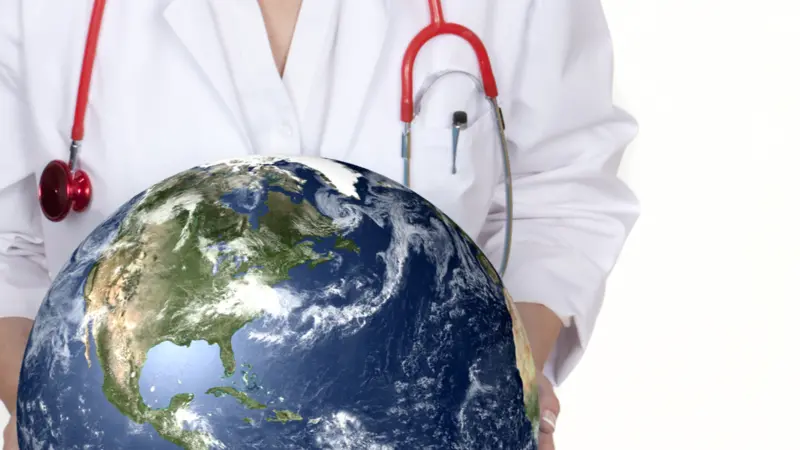

Planet and People Connection

Planet and People Connection
Are Physicians Morally Obligated to Educate Patients About Climate Change?
Eighteen of the past 19 years have been the warmest on record. Concentrations of greenhouse gases continue to accumulate in the atmosphere at increasing rates, heating the earth’s surface and destabilizing climate. Extreme climate change events include: droughts, floods, heat waves, hurricanes, and wildfires, all of which increase morbidity and mortality across the globe.
In a paper published by the American Academy of Family Physicians, the authors concur that physicians can have a positive impact on climate change awareness and policy by incorporating counseling, public health precepts, and advocacy into their practice.
For example, family physicians can advise patients to minimize exposure to air pollution, use devices to track weather information, and alert patients to events such as wildfires. In addition, physicians can make their patients aware of vector-borne illnesses.
Droughts result in insufficient water supplies to meet daily needs for hydration, hygiene, and food production. Floods result in drowning, injuries, infections from contaminated water, respiratory and neurologic effects from mold, infections from crowding in shelters, PTSD, anxiety, and depression. Heat waves result in heat-related morbidity and mortality. Hurricanes result in injuries and death during and after storms, PTSD, anxiety, and depression. Lastly, wildfires result in injuries and death, cardiovascular and respiratory illnesses, PTSD, anxiety, and depression.
Social determinants of good health are also endangered. Loss of income from crop losses can cause mental health effects and homelessness. Loss of employment, income, and home; displacement; inability to procure health insurance and medications for chronic illnesses are also outcomes. Health and functional effects negatively affect outdoor workers.
The consequences of failing to stabilize the climate at a global average surface temperature below 2.5°F (1.5°C) above preindustrial levels are so detrimental for human health and well-being that a compelling argument can be made that physicians have a moral obligation to educate their patients and support policies to reduce greenhouse gas emissions.
REFERENCES
Parker, C. L., Wellbery, C. E., & Mueller, M. (2019, November 15). The changing climate: Managing health impacts. American Family Physician, 100(10), 618–626. https://test.ms2ch.org/wp-content/uploads/2019/11/AAFPArticle-TheChangingClimate-ManagingHealthImpa…


 By
By






